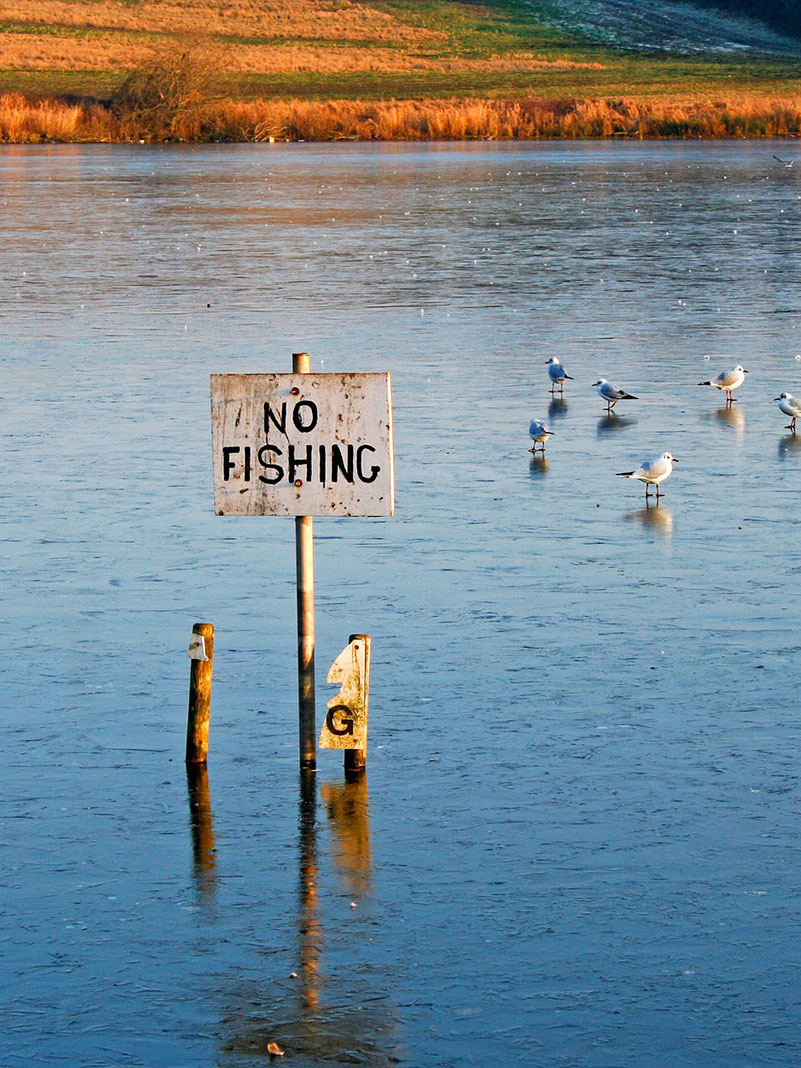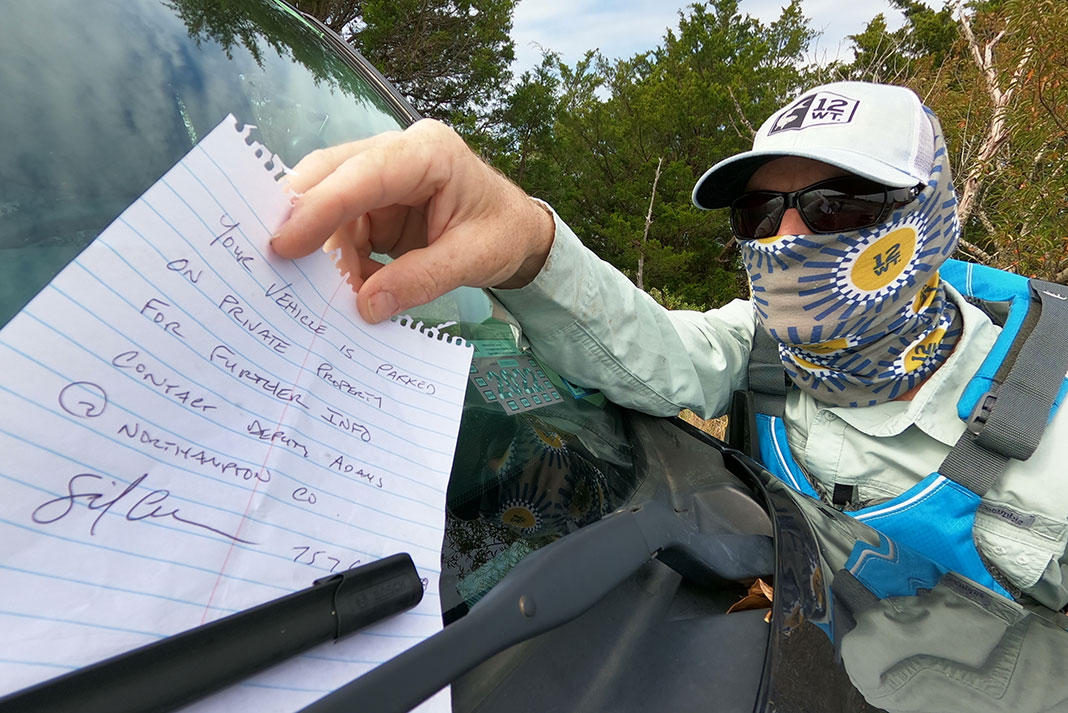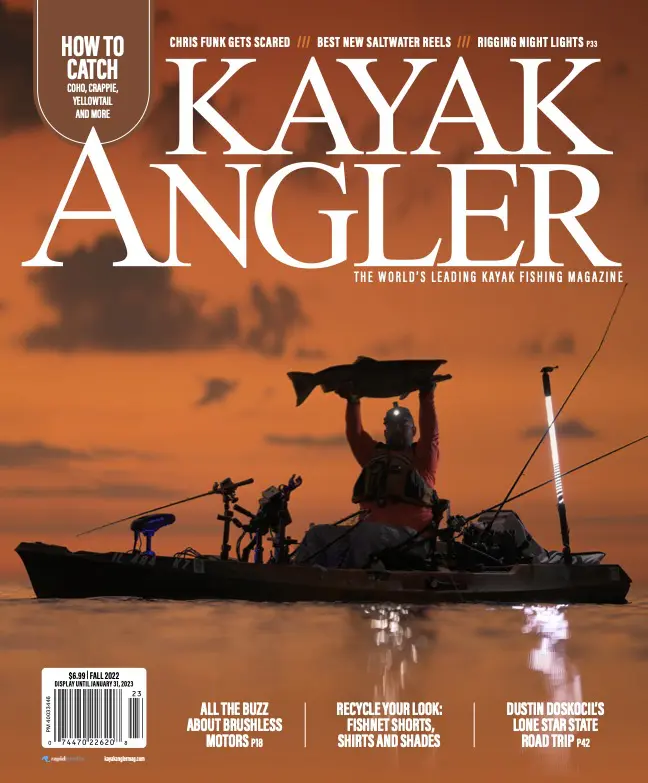Products You May Like
At the end of a single lane road, through salty pines and scrub marsh, a secret beach offers access to one of the few places I can target tarpon in Virginia.
For almost a decade, I have driven down the road in the pitch-black darkness to launch my kayak. As the sun flicks the horizon, I make the three-mile, open-water paddle to the tarpon hole. The fishing is easily worth the effort, but on one particular trip my biggest battle wasn’t on the water.
Behind the Fight for Fishing Access
On a blazing hot day last summer, after hours in the sun watching tarpon roll and not getting a bite, I returned to the secret launch to find a note stuck under the wiper blade on my truck: Your vehicle is parked on private property. For further info contact Deputy Adams.
I called the number and Deputy Adams explained the landowner doesn’t want people parking on his land. End of story.
Disappointment doesn’t begin to describe my reaction. The prohibition ended my efforts to catch a silverado in a paddle kayak.
Local watermen use the place to tether their skiffs. By the evidence of firepits, beer cans and scraps of trash, local yokels use the launch, too. After reading the note, I looked around and noticed the evidence was gone.
We may argue about pedals versus paddles and motorboats versus kayaks, but we need to come together to argue for access.
Pay the Piper—or the Parking Authority
The pain was bad, but the next day twisted the knife. I headed out early in the morning for a ride at Back Bay National Wildlife Refuge. If I get to the Little Island Fishing Pier parking lot before 8 a.m., I don’t have to pay the entrance fee.
At 8:02, I pulled into the lot. The attendant’s booth was empty and I exhaled and pumped my fist as I slid into a parking spot.
After my ride, I returned to the truck and saw an envelope under my wiper blade. It read: PARKING TICKET in big red letters. A tiny car with Parking Authority on the door was idling nearby. A lady in a cap and white shirt with badges stood next to the car.
My face was the same color as the letters on the envelope as I held the ticket over my head and yelled across the lot, “What’s this? I was here before 8 a.m.!”
“You have to pay the meter,” she replied, pursing her lips.
“Meter? What meter?”
She pointed to a sign and electronic pay station newly installed at the entrance. I had driven right past it pumping my fist.
I steamed. “I’ve been parking here for 30 years and never had to pay before 8 a.m.” The lady just got in her little car and drove to the other side of the lot.

Growing Crowds Bring More Barriers to Access
Both experiences were the result of the same cause. More people are enjoying the outdoors and it’s affecting those of us who have been out here for years. One way to stem the flow is cut off the access.
As parking lots get crowded, I expect to see more signs limiting where and when the outdoors is open for business. When I was in high school, not only could I park for free, I could drive on the beach. In my experience, access is lost faster than it is created. We may argue about pedals versus paddles and motorboats versus kayaks, but we need to come together to argue for access.
A few years ago, the refuge park service shut down night fishing. A group of anglers joined together to fight for one month of night fishing during the height of red drum season. After months of letters, meetings, public hearings, reviews, implementation, rules, permits and fees, the fishermen were able to walk onto the beach and fish a one-mile stretch of shore. It’s not perfect, but it is open.
In a democracy, the government has to listen to people if people make enough noise. We have to be louder than the sound of access slamming shut.
Meanwhile, I’m back on Google Earth looking for another way to the tarpon hole, and I’ve already found a free parking spot outside the refuge.
Gone for good. We’re losing fishing access faster than gaining. | Feature photo: Ric Burnley

